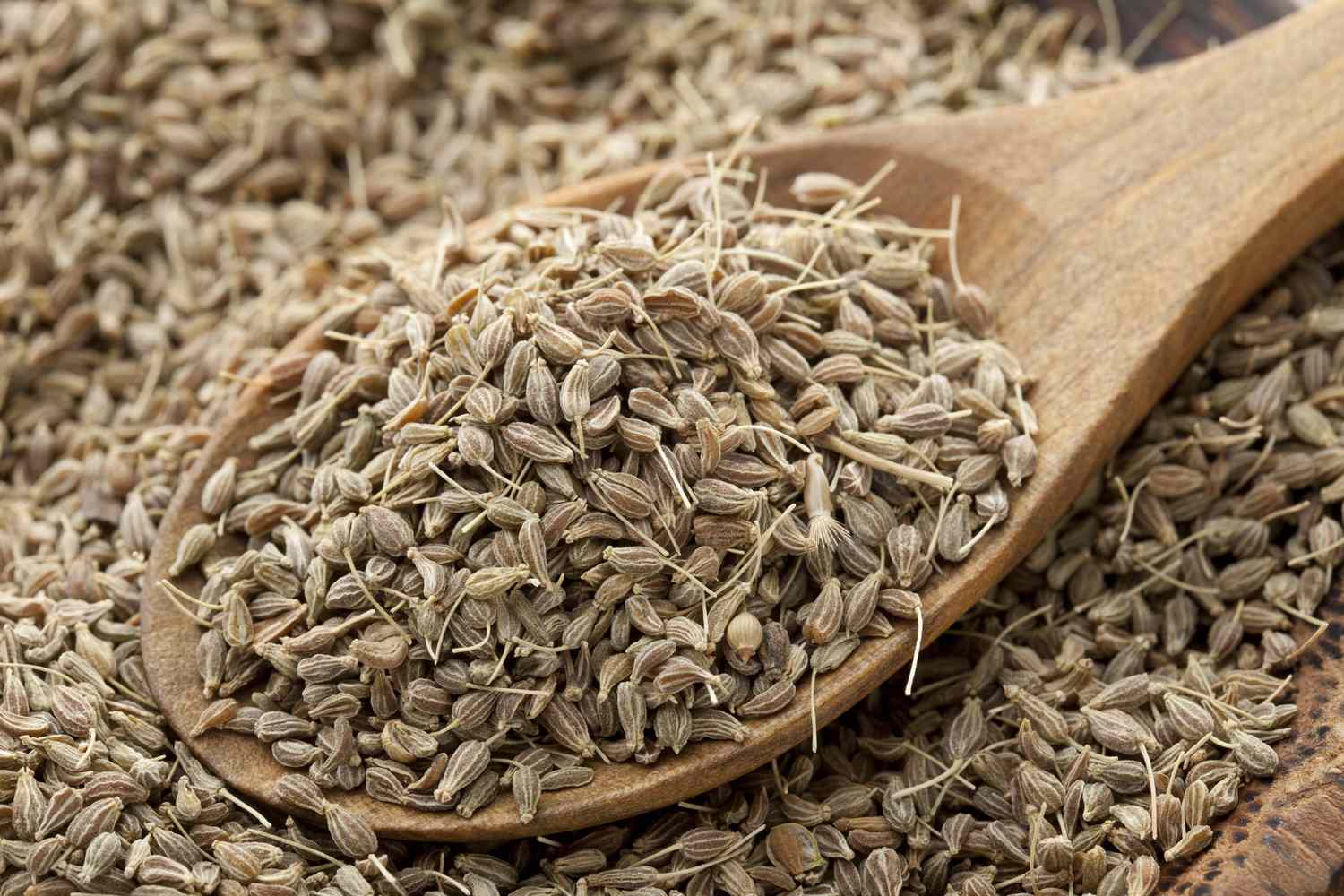
Aniseed, also known as anise, is a popular spice that has been enjoyed for centuries due to its unique flavor and numerous health benefits. Derived from the Pimpinella anisum plant, aniseed is native to the Mediterranean region and is commonly used in cooking and herbal remedies.
In this article, we will delve into 15 fascinating facts about aniseed, exploring its origins, uses, and interesting attributes that make it a staple ingredient in many cuisines worldwide. From its distinctive licorice-like taste to its potential digestive and respiratory benefits, aniseed has a rich history and a range of applications that are sure to pique your interest.
So, join us as we uncover some intriguing facts about aniseed that will not only enhance your understanding of this popular spice but also inspire you to incorporate it into your culinary adventures.
Key Takeaways:
- Aniseed, also known as anise, is a versatile spice with a strong licorice-like flavor. It’s used in cooking, herbal remedies, and even as a natural insect repellent, making it a must-have in the kitchen and beyond.
- From aiding digestion to being a key ingredient in traditional Greek cuisine, aniseed offers a wide range of culinary and medicinal benefits. Its distinct flavor and aroma make it a popular choice for enhancing both sweet and savory dishes.
The Origin of Aniseed
Aniseed, also known as anise, comes from the Pimpinella anisum plant, which is native to the Mediterranean region. It has been used for centuries in cooking, medicine, and even in religious ceremonies.
Distinct Flavor and Aroma
One of the key characteristics of aniseed is its strong licorice-like flavor and aroma. Its sweet and spicy taste adds a unique twist to a wide range of culinary creations.
Common Culinary Uses
Aniseed is a popular ingredient in many cuisines around the world. It is often used in baking to enhance the flavors of cookies, breads, and pastries. Additionally, it is a common ingredient in traditional liqueurs such as absinthe and ouzo.
Medicinal Properties
Aniseed has been used for its medicinal properties for centuries. It is known to aid digestion, alleviate bloating and gas, and relieve symptoms of coughs and colds. It is also believed to have anti-inflammatory and antioxidant properties.
Aniseed Tea
Aniseed can be brewed into a soothing and aromatic tea. This herbal infusion is known for its calming effects and is often used as a natural remedy for insomnia and anxiety.
Aniseed in Traditional Medicine
In traditional medicine, aniseed has been used to treat various ailments. It has been used as a remedy for menstrual pain, colic in infants, and as a natural expectorant to relieve congestion.
Aniseed and Digestive Health
The essential oils present in aniseed are known to stimulate the production of digestive enzymes, promoting healthy digestion and reducing symptoms of indigestion. It is often used as a natural remedy for stomach discomfort and bloating.
Aniseed Candy
Aniseed is a popular flavoring for candies and confections. Its distinct taste adds a burst of sweetness and spice, making it a favorite among candy lovers.
Aniseed in Traditional Greek Cuisine
Aniseed plays a significant role in Greek cuisine. It is a key ingredient in traditional dishes such as pastitsio, a layered pasta and meat casserole, and loukoumades, bite-sized honey drizzled fritters.
Aniseed and Herbal Remedies
The use of aniseed in herbal remedies dates back to ancient civilizations. It has been used to ease symptoms of various respiratory conditions, including coughs, bronchitis, and asthma.
Aniseed and Aromatherapy
Aniseed essential oil is widely used in aromatherapy for its calming and uplifting properties. It is believed to help alleviate stress, anxiety, and insomnia when used in diffusers or massage oils.
Aniseed and Traditional Chinese Medicine
In traditional Chinese medicine, aniseed is believed to have warming properties. It is commonly used to relieve symptoms of colds, improve circulation, and promote overall well-being.
Aniseed as a Natural Insect Repellent
Aniseed essential oil can be used as a natural insect repellent. Its strong aroma helps to keep mosquitoes, flies, and other insects at bay, making it a useful addition to outdoor gatherings.
Aniseed in Alcoholic Beverages
Aniseed is a key ingredient in various alcoholic beverages worldwide. From the popular French aperitif known as pastis to the traditional Mexican drink called aguardiente, aniseed adds an unmistakable flavor to these spirits.
Alternative Names for Aniseed
Aniseed is known by different names in various parts of the world. In India, it is called saunf, while in Italy, it is referred to as anice. It is also known as anis, anix, and sweet cumin in different regions.
These 15 facts about aniseed highlight its culinary, medicinal, and cultural significance. From its origins in the Mediterranean region to its use in traditional medicine and cuisines around the world, aniseed continues to captivate with its unique flavor and fragrance.
So the next time you come across aniseed in a recipe or a product, you’ll have a deeper appreciation for this aromatic spice and the myriad of ways it can enhance your culinary creations and boost your well-being.
Conclusion
In conclusion, aniseed is a highly versatile and aromatic spice that has been used for centuries for its medicinal and culinary properties. From its distinctive taste and aroma to its numerous health benefits, aniseed offers a unique and flavorful addition to various dishes and beverages. Whether you’re using it in baking, cooking, or even in herbal teas, aniseed is sure to elevate the flavor profile of your creations. So, next time you come across aniseed, experiment with its flavors and enjoy the many wonders it has to offer.
FAQs
1. What is aniseed?
Aniseed is the seed of the anise plant (Pimpinella anisum), which is native to the Mediterranean region. It is known for its distinct licorice-like flavor and aroma.
2. How is aniseed used in cooking?
Aniseed is widely used in cooking and baking. It is often used to flavor candies, cookies, cakes, and bread. It can also be added to soups, stews, and sauces for an extra kick of flavor.
3. What are the health benefits of aniseed?
Aniseed has several potential health benefits. It is known to aid in digestion, relieve menstrual cramps, improve respiratory health, and promote healthy skin. However, it’s important to note that these benefits may vary from person to person.
4. Can aniseed be used as a natural remedy?
Yes, aniseed has been used as a natural remedy for centuries. It is believed to help reduce bloating, indigestion, and colic. It can also be used as a natural expectorant to relieve coughs and congestion.
5. Are there any side effects of consuming aniseed?
While aniseed is generally safe to consume in moderation, some individuals may be allergic to it. Additionally, excessive consumption may cause digestive issues or interact with certain medications. It’s always best to consult with a healthcare professional if you have any concerns or pre-existing conditions.
Aniseed's rich history, diverse uses, and health benefits make it a fascinating spice to explore. If you enjoyed learning about aniseed, why not delve into the world of licorice, a plant with a similar flavor profile? Expand your knowledge of herbs and their various applications in cooking and natural remedies. For more intriguing facts about the world of spices, be sure to check out our other articles that will tantalize your taste buds and curiosity.
Was this page helpful?
Our commitment to delivering trustworthy and engaging content is at the heart of what we do. Each fact on our site is contributed by real users like you, bringing a wealth of diverse insights and information. To ensure the highest standards of accuracy and reliability, our dedicated editors meticulously review each submission. This process guarantees that the facts we share are not only fascinating but also credible. Trust in our commitment to quality and authenticity as you explore and learn with us.


